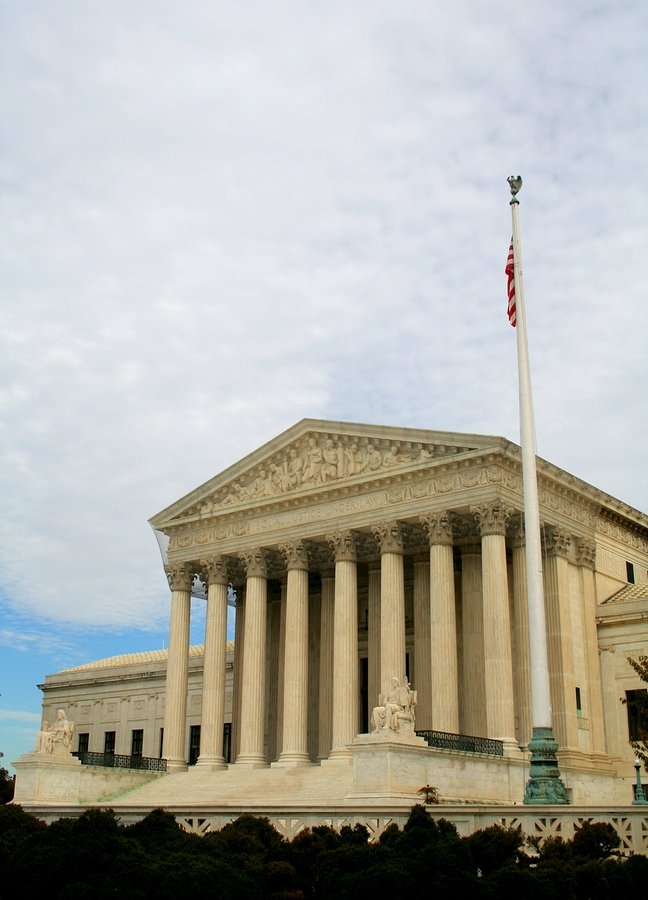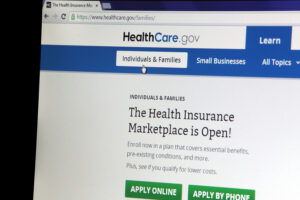The Supreme Court today upheld tax subsidies in states relying on the federal healthcare.gov exchange, preserving health insurance subsidies for 6.4 million Americans in the 34 states that have not set up their own exchange.
Chief Justice John Roberts said in a 6-3 majority opinion (notable that it wasn’t 5-4, as 2012 Obamacare dissenter Justice Anthony Kennedy was part of the majority this time around) on King v. Burwell that, “Congress passed the Affordable Care Act to improve health insurance markets, not to destroy them. The Act gives each State the opportunity to establish its own Exchange, but provides that the Federal Government will establish the Exchange if the State does not.”
In King v. Burwell, plaintiffs argued that an obscure provision (“established by the state”) of the 900-page Affordable Care Act restricts subsidies only to states that set up their own exchanges, thereby making subsidies illegal in the 34 states that rely on the federal healthcare.gov exchange.
Here’s an excerpt from the decision:
Section 36B. If the statutory language is plain, the Court must enforce it according to its terms. But oftentimes the meaning—or ambiguity—of certain words or phrases may only become evident when placed in context. So when deciding whether the language is plain, the Court must read the words “in their context and with a view to their place in the overall statutory scheme.” FDA v. Brown & Williamson Tobacco Corp., 529 U. S. 120, 133. Pp. 7–9.
(b) When read in context, the phrase “an Exchange established by the State under [42 U. S. C. §18031]” is properly viewed as ambiguous. The phrase may be limited in its reach to State Exchanges. But it could also refer to all Exchanges—both State and Federal—for purposes of the tax credits. If a State chooses not to follow the directive in Section 18031 to establish an Exchange, the Act tells the Secretary of Health and Human Services to establish “such Exchange.” §18041. And by using the words “such Exchange,” the Act indicates that State and Federal Exchanges should be the same. But State and Federal Exchanges would differ in a fundamental way if tax credits were available only on State Exchanges—one type of Ex- change would help make insurance more affordable by providing billions of dollars to the States’ citizens; the other type of Exchange would not. Several other provisions in the Act—e.g., Section 18031(i)(3)(B)’s requirement that all Exchanges create outreach programs to “distribute fair and impartial information concerning . . . the availability of premium tax credits under section 36B”—would make little sense if tax credits were not available on Federal Exchanges.
The argument that the phrase “established by the State” would be superfluous if Congress meant to extend tax credits to both State and Federal Exchanges is unpersuasive. This Court’s “preference for avoiding surplusage constructions is not absolute.” Lamie v. United States Trustee, 540 U. S. 526, 536. And rigorous application of that canon does not seem a particularly useful guide to a fair construction of the Affordable Care Act, which contains more than a few examples of inartful drafting. The Court nevertheless must do its best, “bearing in mind the ‘fundamental canon of statutory construction that the words of a statute must be read in their context and with a view to their place in the overall statutory scheme.’” Utility Air Regulatory Group v. EPA, 573 U. S. ___, ___. Pp. 9–15.
(c) Given that the text is ambiguous, the Court must look to the broader structure of the Act to determine whether one of Section 36B’s “permissible meanings produces a substantive effect that is compatible with the rest of the law.”United Sav. Assn. of Tex. v. Timbers of Inwood Forest Associates, Ltd., 484 U. S. 365, 371.
Here, the statutory scheme compels the Court to reject petitioners’ interpretation because it would destabilize the individual insurance market in any State with a Federal Exchange, and likely create the very “death spirals” that Congress designed the Act to avoid.
If the decision had struck down the subsidies instead, Congress could have fixed the problem in a day by passing legislation clarifying that insurance purchased through healthcare.gov should be treated the same as insurance bought in state-based exchanges. But most Republicans viewed such a simple fix as toxic despite the fact that it would come to the rescue of 6.4 million Americans covered by Obamacare subsidies who might have been denied them if the ruling went the other way. Interestingly, most of those 6.4 million reside in “red” states with Republican majorities, putting Republican politicians in those states in danger of facing an angry backlash from constituents. As a June 22 editorial in the Baltimore Sun stated, “Enabling the ACA in any fashion — even if doing so would save many of their constituents from the hardship and financial ruin that might come from suddenly losing insurance coverage — would be seen as a non-starter by tea party conservatives.”
• To comment on the outcome, please visit this new thread: Scotus: Subsidies upheld
• To view the full ruling, click here
• For additional coverage and reaction to today’s decision, visit the following links:








